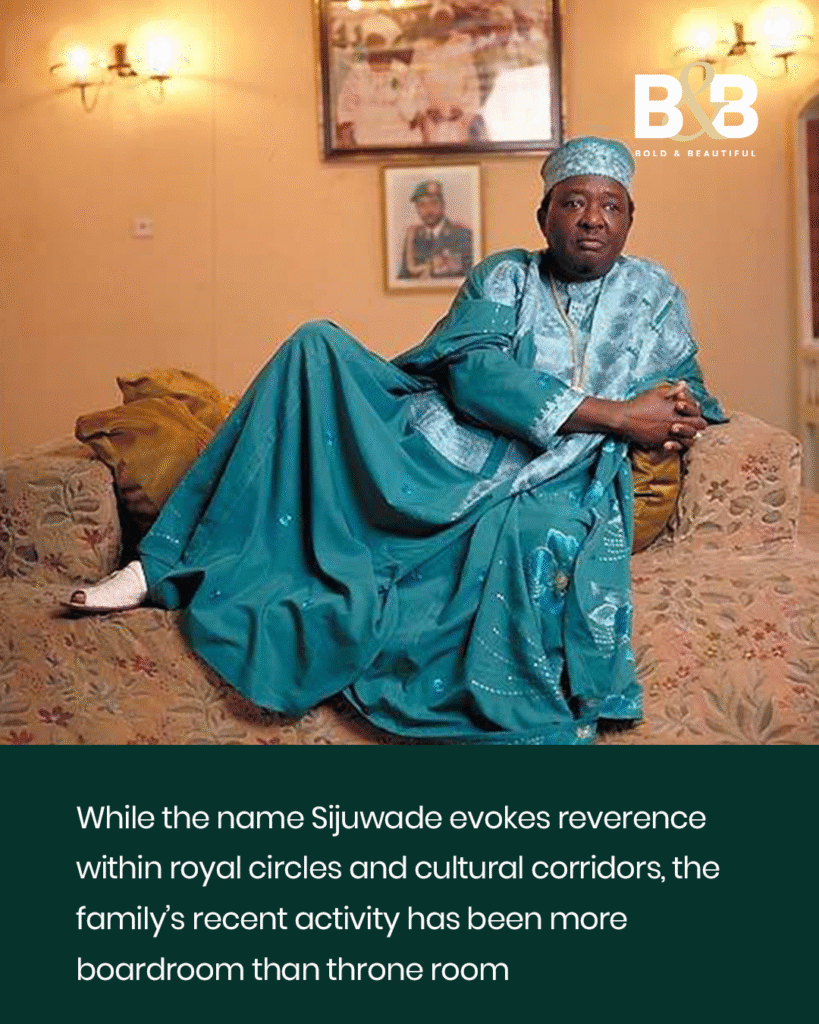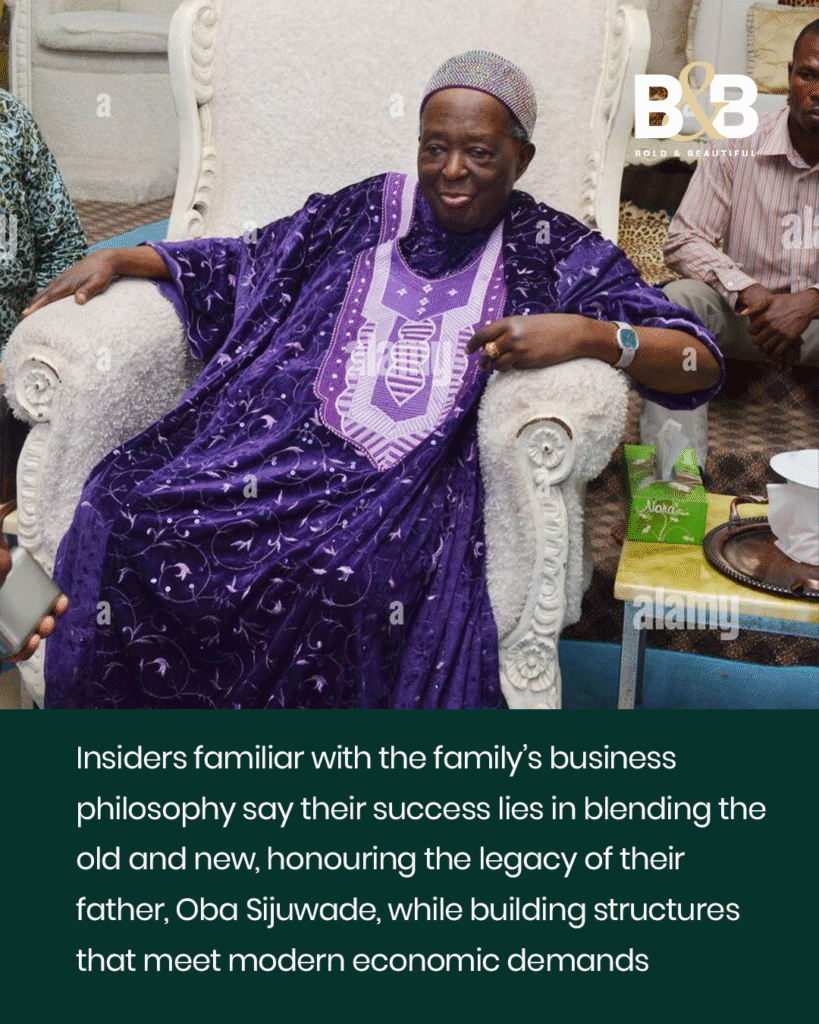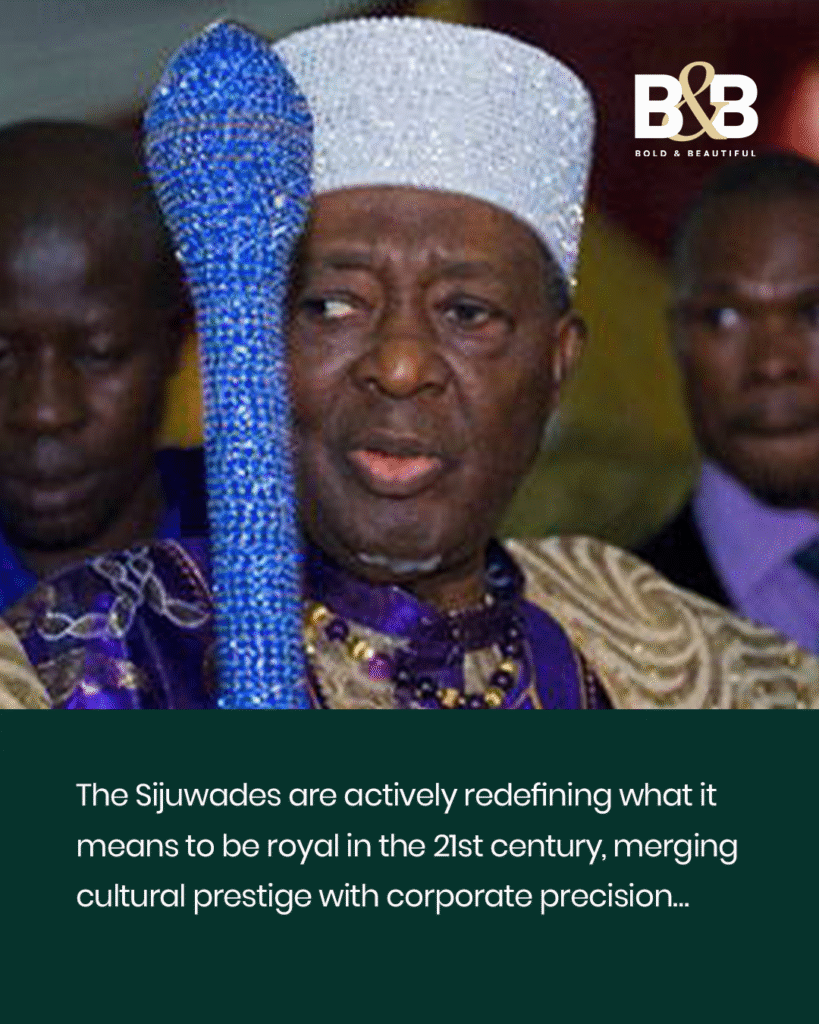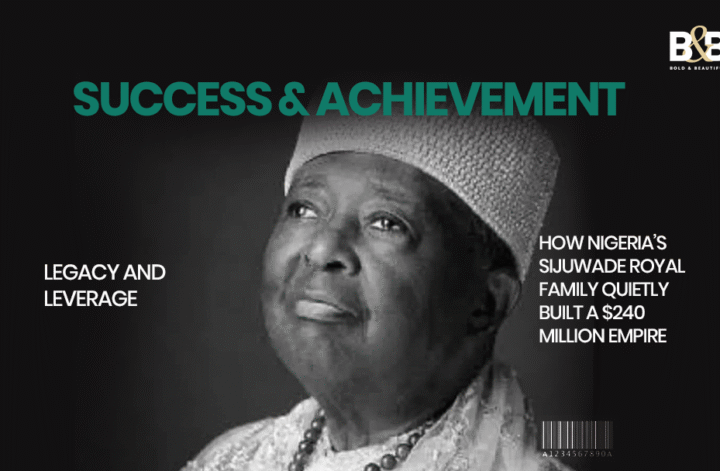Once known chiefly for their royal lineage and cultural stature, Nigeria’s Sijuwade royal family has re-emerged in the last decade as a powerhouse in business and infrastructure, growing its fortune to an estimated $240 million. What began as a legacy rooted in Yoruba tradition has evolved into a far-reaching financial portfolio led by a new generation determined to shape the family’s future far beyond the palace walls.

At the helm of this strategic transformation is Prince Adetokunbo Sijuwade and his siblings, heirs to the late Oba Okunade Sijuwade, the 50th Ooni of Ife. While the name Sijuwade evokes reverence within royal circles and cultural corridors, the family’s recent activity has been more boardroom than throne room. Over the past ten years, they have tripled their wealth, carving a distinctive niche in Nigeria’s competitive oil, real estate, and infrastructure markets.

A key pillar of the family’s wealth expansion has been their investment arm, which now holds a 10 percent equity stake in a promising oil block in the Niger Delta. This single asset alone is projected to yield returns in excess of $40 million over the next three years, positioning the family as a quiet but serious player in Nigeria’s upstream energy space.
But oil is just one piece of the puzzle. The family has also expanded its real estate footprint across major Nigerian cities and made targeted entries into industrial infrastructure. Their current projects include a logistics hub on the outskirts of Lagos and a new urban development scheme in Osun State aimed at driving housing and commercial growth.
Insiders familiar with the family’s business philosophy say their success lies in blending the old and new, honouring the legacy of their father, Oba Sijuwade, while building structures that meet modern economic demands. The approach has been methodical: strategic partnerships, conservative spending, and maintaining a low public profile.

“People expect royalty to just sit in palaces and attend ceremonies,” one associate close to the family told B&B International Magazine. “But the Sijuwades are not waiting for cultural relevance alone. They’re building generational wealth the same way global dynasties do.”
Indeed, this strategy marks a departure from the stereotype of African royal families being custodians of tradition but passive in commerce. The Sijuwades are actively redefining what it means to be royal in the 21st century—merging cultural prestige with corporate precision.
Their journey also mirrors a broader trend among Nigeria’s elite families who are increasingly turning to private equity, energy ventures, and real estate to ensure financial resilience and multigenerational impact.
In an era when power is measured not only by heritage but also by influence, liquidity and foresight, the Sijuwade family is scripting its own modern legacy, one that may become a model for other traditional institutions navigating the demands of a changing economic landscape.




